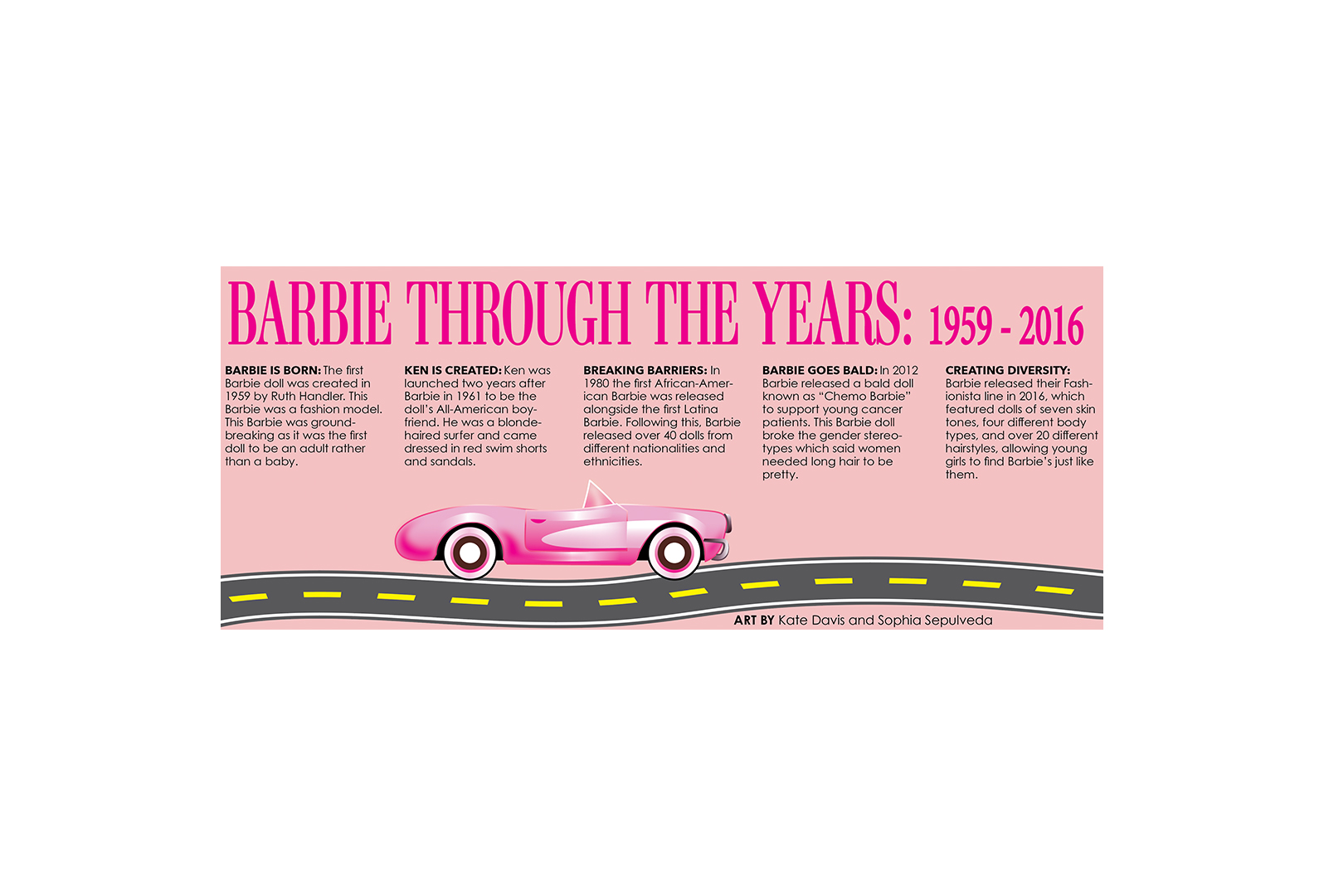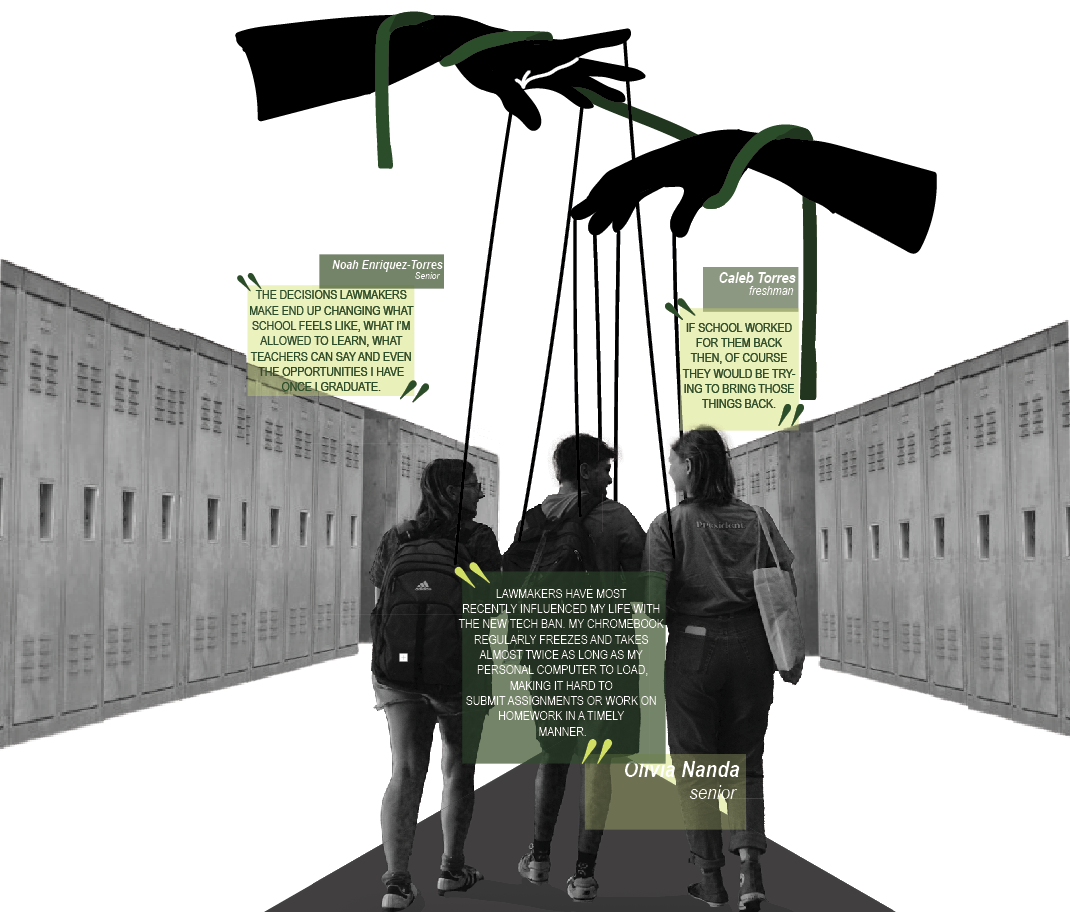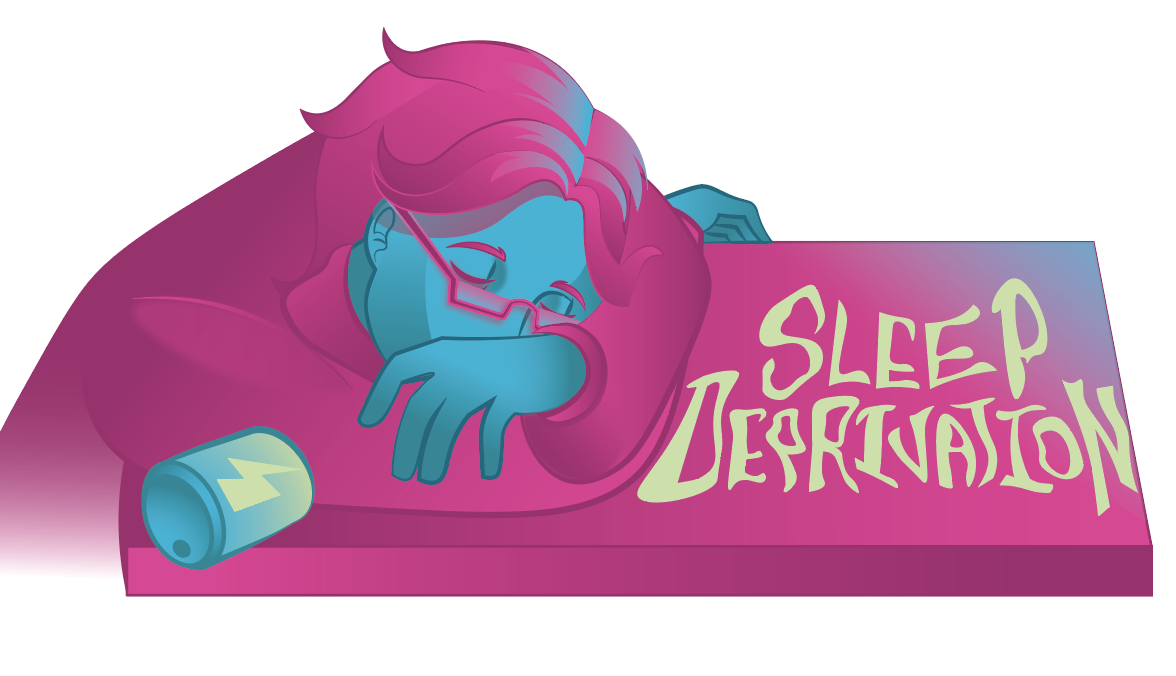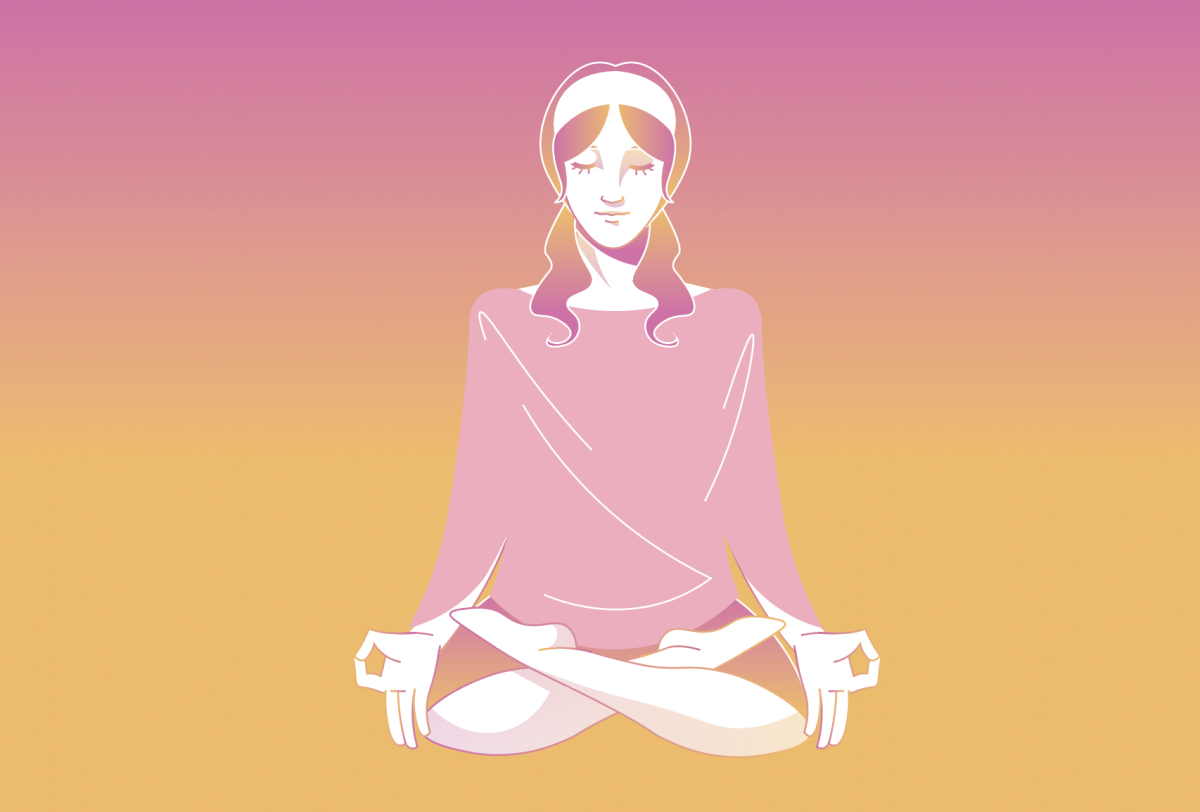Barbie and feminism
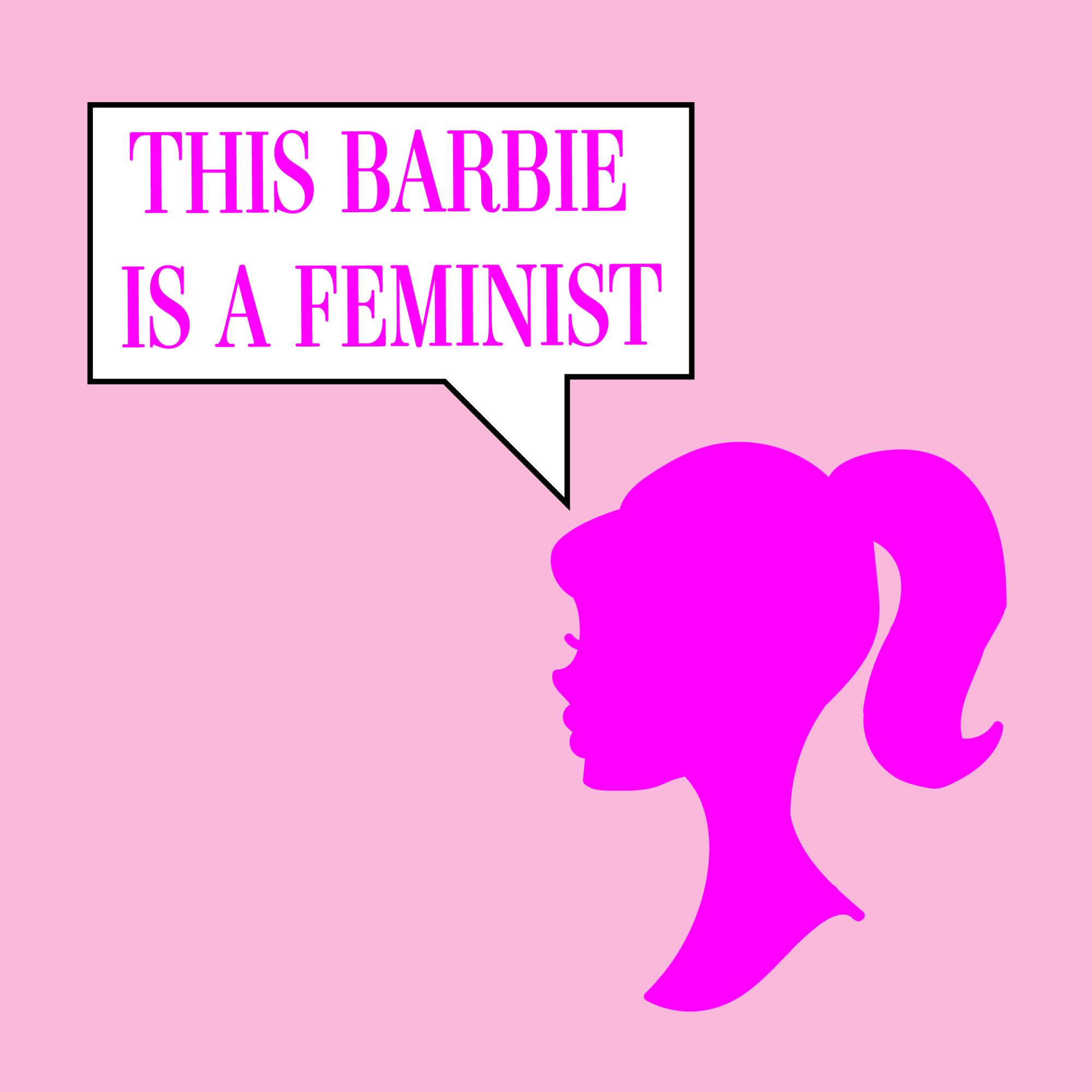
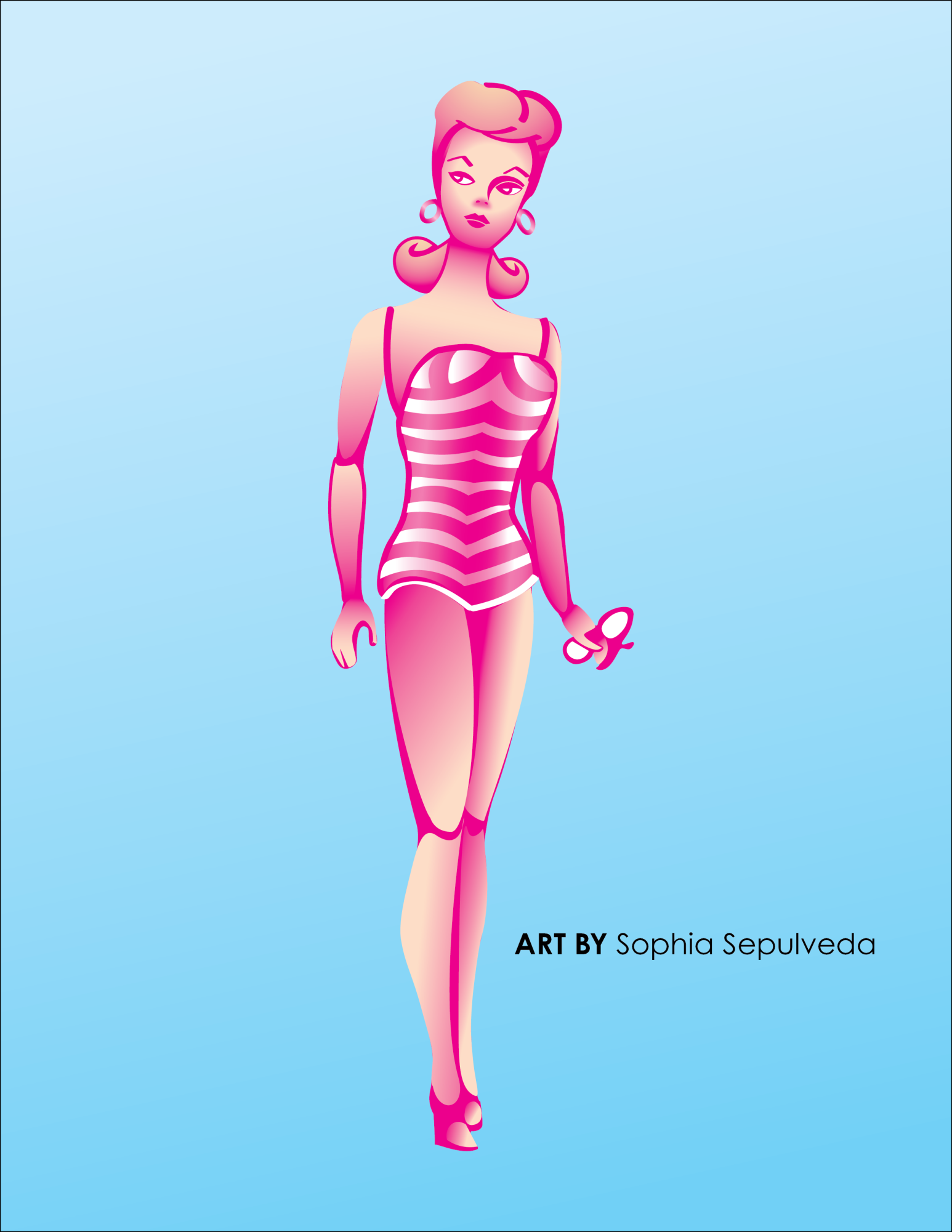
Ten-year-old Brighton Toland sits on her bedroom floor, holding Doctor Barbie who is ready to drive off to work in her pink Corvette. Already sitting in the car are Astronaut Barbie, Pilot Barbie, and Architect Barbie.
Now a senior, Toland has taken Barbie’s advice and is pursuing her dreams of being an on-stage performer with Bowie’s Starlight Theater Company (STC). Taking after Film Director Barbie, Toland is now a senior director in the STC.
“I grew up with parents that told me women could do anything men could do, and that’s what I did with my Barbies,” Toland said. “My Barbies’ had all the big jobs and Ken was a stay-at-home dad that watched the kids. I just thought it was fun that Barbie got to do all the cool things and make the money.”
The first Barbie doll was created in March, 1959 and was the first toy doll that was an adult, rather than a baby. That Barbie was a fashion model and could be seen wearing a black and white swimsuit.
“I think it was really ground-breaking at the time that Barbie was an adult because it showed that women are capable of becoming more than just mothers,” senior Karen Merryman said. “Barbie can be anything and women can be anything, not just mothers. I think it’s important to note that Barbie has never been portrayed as a mother.”
At the time of Barbie’s creation, feminism was not a new concept, and women had the right to vote. However, it was still uncommon for women to have jobs outside of their homes, but Ruth Handler, the inventor of Barbie, didn’t let that stop her.
“I think she was an incredible woman and role model who changed the lives of many,” Merryman said. “She revolutionized feminism for the younger generation and helped lead to the lives women lead in the 21st century.”
Following the creation of Fashion Model Barbie, the doll expanded her resume into hundreds of different careers and even landed on the moon before Neil Armstrong. Barbie’s wide range of professions inspired a new generation of feminists to continue to fight for the same opportunities and treatment in the workplace.
“There’s this lovely long list of rights that white men gave to themselves long ago that women and people of color have had to fight for item by item,” English and Ethnic Studies teacher Chrissy Hejny said. “After women got the right to vote, they had to demand the right to work, to choose their own reproductive path, to an education, to their own homes, to open their own bank accounts. Little things that you and I take for granted were hard-won by the women who came before us.”
The early generations of feminists were primarily focused on women’s suffrage. Despite having accomplished this, today’s feminists are passionate about exploring new avenues and goals for the future of women.
“I think that women have made a lot of progress, looking back to the times when women couldn’t vote,” senior Tatum Wilson said. “We have definitely evolved and gained a lot more rights and respect. But at the same time, we’re still not done and we have to keep on moving. We have to continue to try and gain equal rights because although so much progress has been made, there’s still so much that needs to be done.”
The values and purpose of feminism are often disputed, with the notion of misandry often being discussed. According to the Merriam-Webster Dictionary, misandry can be defined as hatred for men, which according to many feminists couldn’t be further from their intentions.
“I don’t hate men, and I don’t know a single woman or feminist who hates men. The patriarchy hurts boys and men, too,” Hejny said. “The other misconception is that women want to flip the script. To make it a swap. That we want to oppress men the way they’ve oppressed everyone else for centuries. Not only is it hilariously illogical, but the truth is that what feminists want is for everyone to have the opportunity to live their one precious life free from discriminatory institutional barriers. Feminism isn’t a game that ends with winners and losers. The goal of feminism is for everyone to win.”
In July of 2023, the Barbie movie was released into theaters. The film followed the lives of the many Barbies and Kens living in Barbie World and quickly rose to popularity due to its commentary on sexism in the real world. As of September 5, “Barbie” has taken the box office by storm, earning more than $1.38 billion worldwide to become the highest-grossing film in Warner Bros.’ 100-year history; the highest-grossing film ever from a female filmmaker at the domestic box office; and is the largest worldwide film release of 2023.
“I thought it was very feminist in a good way. I loved it,” Toland said. “I think it kind of woke people up to what the world was really like here. How all the Barbies were acting toward the Kens is how men act toward women in real life. I think that was important to show and I thought it was really good.”
Not only did fans of the movie enjoy the emphasis it placed on uplifting women, but it also tackled more serious conversations which resonated with many viewers.
“I loved the film, and I struggled with it. I seethed with anger and discomfort when Barbie was expected to comfort Ken after she had just experienced her own dark night of the soul,” Hejny said. “I talked to my therapist about it. My therapist asked me, “Where do you see Chrissy in that scene,” and it hit me. I am Barbie. I spend every waking moment comforting everyone else, making sure everyone else feels good, comfortable, and confident, but no one does that for me. They call me a queen and tell me to get up, dust off, and straighten my crown, but they don’t tell me I’m enough.”
Despite the immense amount of support for the movie, it created significant amounts of controversy. Conservative political commentator Ben Shapiro was notably upset about the movie, and went viral for his 43-minute-long video expressing his discontent with the film, all while burning a Barbie doll.
“This movie is not just a piece of s**t. This movie is a flaming piece of dog s**t piled atop an entire dumpster on fire piled atop a landfill filled with dog s**t,” Shapiro said. “It is one of the worst movies I’ve ever seen. On every possible level, it is a horrific movie.”
While some people like Shapiro had an intense reaction to the movie, others only had minor grievances with the film’s feminist commentary.
“I felt like the way the movie portrayed women in the real world made it seem like no one was able to rise above the odds and that we were still in an entirely oppressive society where women were just on the lower echelons of every company and place that they’re in,” Merryman said. “In reality, I feel like a lot of women have stepped up and there’s more women in power than there ever have been before. I preferred the movie as a comedy more than a social commentary, but I did see the message they were trying to portray.”
Criticism is not new to the Barbie franchise. The company received significant amounts of backlash for a lack of diversity in body type, and its effects on the generations who grew up with the toy. According to Harmony Healthcare It, “69% think Barbie dolls can lead to body image issues” and “82% think Barbie dolls portray unrealistic body images to girls and women.”
“Personally, I was too young to really look at Barbie and think ‘this is what I should look like,’ because I hadn’t really matured, I was just playing with these Barbies,” senior Tess Nielson said. “I think now they’re more inclusive, have different bodies that are more realistic, and they’ve grown. But I don’t think it affected me that much. It might have affected the teenagers who saw them and were more aware of that, but I don’t know if they were really playing with Barbies as much.”
As the Barbie company continues to grow and evolve, so does the fight for equality. Many feminists are now focusing on expanding the movement to support all women, not just women of certain races, origins, or ethnicities.
“Women and people of color have been fighting for equality and for an end to every form of discrimination for centuries,” Hejny said. “Every action has an equal opposite reaction– as long as sexism and misogyny continue to plague our systems, feminism will be here. There’s no opting out of this conversation.”

Host Audrey Cullinane and guest Brighton Toland discuss the movie of the summer, Barbie. It may earned over a billion dollars but did it earn the praise of our fearless podcasters? Listen to find out!
This poll has ended.
Did Barbie portray feminism well or not?
Sorry, there was an error loading this poll.
Your donation will support the student journalists of James Bowie High School. Your contribution will help cover our annual website hosting costs. Any contributions made through this service are NOT tax deductible. If you would like to make a tax deductible donation OR to subscribe to our print edition, please contact us at [email protected].



